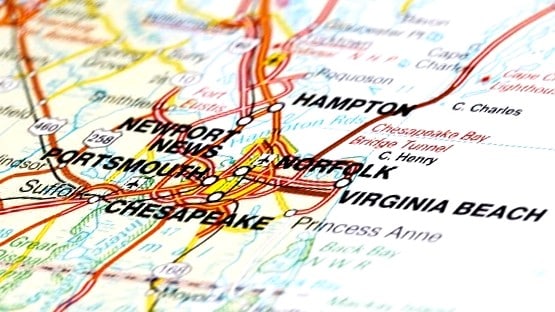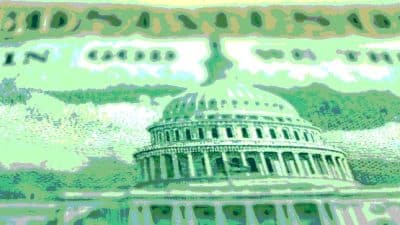
Between 1904 and 1944, three prominent political figures emerge in the United States, including Theodore Roosevelt and Franklin Delano Roosevelt.
“And, between them, the president who was born here in Staunton,” author Stan Haynes said of Thomas Woodrow Wilson, who was born in Staunton in 1856.
Haynes, author of “The First American Political Convention: 1832-1872” and, most recently, “Roosevelt to Roosevelt,” spoke Monday night at the Woodrow Wilson Presidential Library on “Professor to President: Woodrow Wilson’s Nominating Conventions.”
In the beginning, presidential nominating conventions were “where important decisions were made.” From the 1830s until after the American Civil War, they were always held in Baltimore, because of close proximity to Washington, D.C. and proximity to modes of transportation, including steamboat. Sometimes, casting multiple ballots was necessary before a nomination was confirmed. Forty-six were cast before Wilson was nominated in 1912.
Haynes said that candidates did not used to attend nominating conventions. In fact, openly campaigning for president was not dignified.
“It was said: The office sought the man, the man did not seek the office,” Haynes said.
And acceptance speeches by nominees were not done until 1932.
What today’s conventions have in common with the early conventions is drama.
“American politics have pretty much always been divisive,” Haynes said. Name calling, backstabbing and dirty tricks were not out of the ordinary in the early days of conventions. Close votes were also common.
In 1912, four candidates were under consideration in Baltimore, where the Democratic presidential nominating convention was held after 40 years of being held in Chicago.
Champ Clark, from Missouri, was speaker of the House of Representatives and a decades-long politician. Oscar Underwood, a long politician from Alabama, was the first Southerner to run since before the Civil War.
Although born and raised in the south, Wilson, who so far is the only U.S. president to earn a PhD, was living in and from New Jersey at the time of his nomination.
Judson Harmon was governor of Ohio.
In the beginning, Clark was the favorite and expected to receive the presidential nomination, but history had other plans.
“In 1912, the Democrats had a gift handed to them,” Haynes said. The week before, Republicans became split politically into the Republican Party and the Progressive Party.
With the presence of Nebraska Del. William Jennings Bryan, within moments of the start of the convention, Haynes said, “there would be no harmony at this convention.” Bryan had attempted to run for president several times.
A battle immediately erupted over who would be temporary convention chair.
Then, after casting 10 ballots for the four candidates, New York’s representatives, which numbered 90 that year, changed their votes from Harmon to Clark, which encouraged Bryan, after the 14th ballot, to also change his vote from Clark to Wilson.
“I shall withhold my vote from Mr. Clark so long as New York’s vote is recorded for him,” Bryan said.
After 46 ballots, Wilson was nominated.
“A lot of things happen to get to that point,” Haynes said of the process.
And everyone in the room knew that because of the Republican split, whoever won the Democratic convention would be voted the next American president. On Election Day, Wilson won only 42 percent of the popular vote, but he became the 28th president.
By 1916, Republicans were no longer fractured when the Democratic convention was held in St. Louis.
“Unlike the 1912 convention, there wasn’t a whole lot of drama,” Haynes said. The slogan became “He kept us out of war,” and Wilson was nominated again.
However, outside the convention was a different story. Women wanted the right to vote in America. In a demonstration on the streets of St. Louis so that delegates had to walk by them on their way to the convention, women wore white on the “Golden Lane” and held signs for suffrage.
“But it was not the cake walk that he had in 1912,” Haynes said of Wilson’s second nominating convention.
His second term in office was not as smooth as the first. With health issues and foreign policy stress, Wilson “went from triumph to tragedy.”
“Despite the sad way that his presidency ended, historians generally rank Woodrow Wilson in the top 10 of all of our presidents,” Haynes said.
The 1912 Democratic convention mattered. In 1917, when Wilson asked the U.S. Congress for a declaration of war against Germany and to enter World War I, the vote overwhelmingly favored Wilson. House Speaker Champ Clarke voted no.
Related stories:
Author talks presidential conventions at WWPL’s next Speaker Series event – Augusta Free Press










